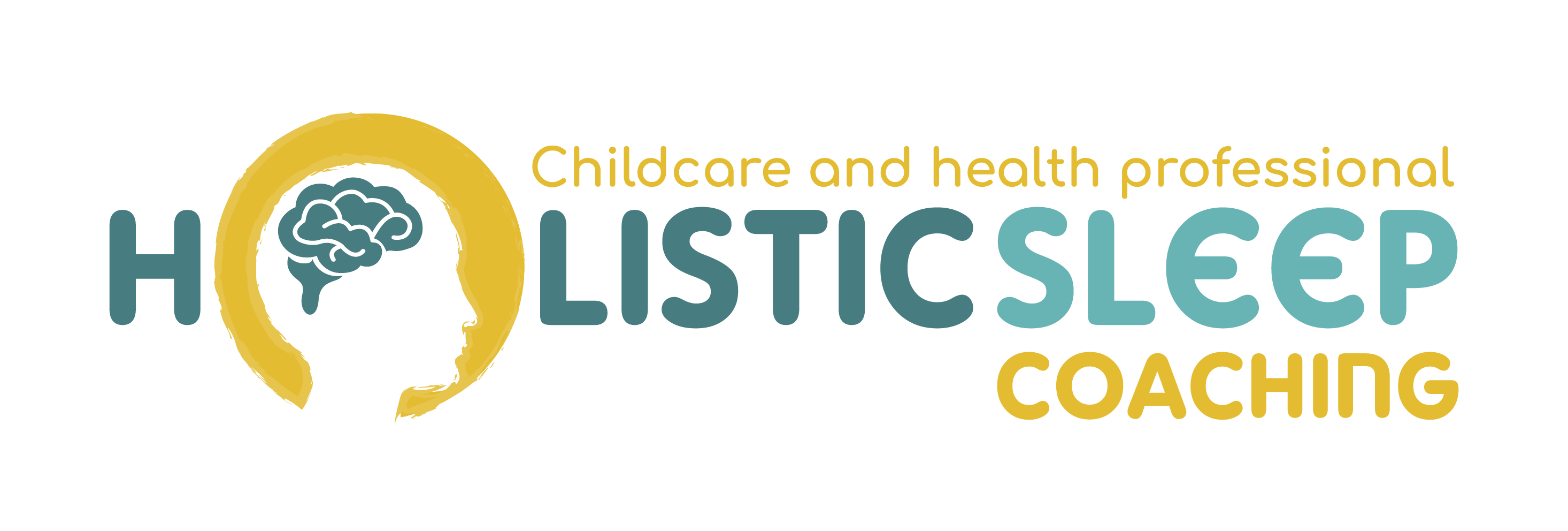The impact of food, nutrition and eating on sleep is something that sleep coaches get asked about a lot. I wonder if it’s because this feels like one of those ‘quick fixes’ that we are so fond of – just change your child’s dinner and their sleep will be resolved! As I’m sure most people know deep down, it’s rarely as simple as that. However, food is important to consider as a part of the holistic sleep puzzle.
Here’s why…

Reason 1: Food and appetite are linked to the circadian rhythm
Most people can appreciate that when they travel, their appetite and eating habits take a while to catch up to the local time zone. The reason for this is that your appetite, like many other bodily functions, is controlled and influenced by the circadian rhythm. If you get into the habit of eating at the same time every day, pretty soon, your stomach begins to rumble around that time – expecting you to fill it. Eating a meal can orientate us to the time of day. If eating habits either for children or adults are irregular or chaotic, then it probably wouldn’t be enough to shift your circadian rhythm alone.
However, if the sleeping habits and light exposure were also chaotic, then it could be enough to scupper bedtime. So, the message here is that we need a balance between not being on a militant schedule, allowing some flexibility and room to maneuver (after all life sometimes just happens!), but keeping timings approximately the same time every day for meals and bedtime. I talk a lot to my clients about a ‘grace period’. This allows some fluidity, but also some routine and loose structure. Aim for mealtimes to be within 30 minutes either before or after the goal time, and that should be enough to allow for spontaneity!
Reason 2: It’s hard to fall asleep either too full or too hungry
Probably all of us can relate to that feeling of fullness and abdominal distension after a large meal. Eating a big meal, particularly one high in carbohydrate will often trigger a feeling of sleepiness. This is because after eating high glycemic index foods, the body has to release insulin to get blood sugar back under control. This has the effect of causing more tryptophan (the chemical precursor to melatonin) to be released into the brain – triggering sleepiness. However, despite the soporific effect of a high carb meal, there are other less helpful side effects of eating too much, or too close to bedtime.
Eating also increases metabolic rate in order to allow for your food to be digested, and the chemicals involved in digestion raise your core body temperature. This is a problem because a drop in body temperature triggers sleep. A raised temperature usually increases alertness. The increase in metabolic rate and temperature also causes more brain activity during REM sleep – which will potentially cause more vivid dreams or nightmares.
In case you’re not convinced yet, the final factor is a simple matter of physics. Lying down increases reflux – because gravity is not assisting the digestion and passage of food. So, if you have a child who is prone to reflux, or has digestive problems, such as constipation, eating too close to bedtime, right before a long period of being horizontal and inactive, is a bad plan.
Just as unhelpful though is going to bed hungry. If children (or adults) go to bed hungry, their brain will be more alert, and prevent them from entering a deep sleep. Your body uses energy all the time, not just during waking hours. Keeping a body going requires constant metabolism, energy expenditure and organ function, to name but a few, and so depriving this complex body of calories before bed is likely to backfire, as survival instinct kicks in.
Low blood sugar in the night is also responsible for restless tossing and turning, poor quality sleep and night waking.
Reason 3: Certain foods can be stimulating
Every parent knows that feeding their children sweets and candy will probably mean hyperactivity. This is caused by a sugar rush. The child’s body will release insulin to regulate the blood sugar, but unstable blood sugar is ot particularly helpful or healthy.
The other thing to consider is allergenic foods. If a child eats something they are allergic to, not only may they get some of the more well-known symptoms of allergy, such as bloating, cramping, skin irritation, night sweats and diarrhea, but it can increase levels of histamine as well. Histamine is strongly linked to the circadian rhythm, and is associated with wakefulness. As well as this, histamine also causes restless sleep, as well as itching.
This is not as obvious in the day, as higher cortisol levels actually inhibit histamine.
However, at night, cortisol levels are usually low, and histamine is much more likely to disturb sleep. Histamine also increases the length of sleep latency and decreases the amount of NREM sleep.
But it’s not just allergy. Certain foods contain stimulant substances, such as tyramine (like tomatoes and aubergine), theobromine (such as chocolate) and caffeine (found in energy and cola drinks, as well as chocolate). Other foods that are high in fat or sugar are also a bad choice at bedtime, as are spicy foods (which raise body temperature and can cause reflux) and too much protein or fibre without another food group to balance this out.
Reason 4: Gut health is important for your overall wellbeing
In recent years, gut health and the microbiome has become rather trendy to talk about. Forty years ago, nobody would have had a clue what you were talking about if you started talking about prebiotics, microbiota and leaky gut. Now it’s widely known and talked about. Yet this is not just pop-science. There is a sound evidence-base supporting the theories about the microbiome and the implication for health, wellbeing and even sleep.
Most of your immune system is in your gut – which plays host to millions of bacteria. These bacteria all have a crucial role in metabolic function, digestion, and relaying important information about our external environment to our immune system. The gut also contains millions of neurons, and via the vagus nerve, the brain receives a huge amount of information from our gut. In fact, you may have already heard that the gut is often called the ‘second brain’ – it contains more neurons than the spinal cord. Finally, the gut is responsible for manufacturing dopamine, melatonin, and serotonin – all important hormones and neurotransmitters that are crucial for sleep.
Now, the micro-organisms in the gut influence how much serotonin we make. They also have a role in regulating the pH of the gut, and helping us with digestion. Poor sleep alters the microbiome, but poor gut health will negatively impact sleep. It’s a vicious circle.
In short, if we want to achieve better sleep for ourselves, and our children, we need to be paying more attention to what they’re eating. High fat, sugar and convenience foods will negatively impact the microbiome and lead to cramping, bloating, and an over-growth of the wrong kinds of bacteria.
So what foods are a good idea?
You’ve probably guessed that there are no magic foods that will flick the sleep switch. However, there are some well-known favourites that are known to be high in substances which aid sleep. These will not correct other aspects of sleep difficulty, such as faulty sleep hygiene, but may be a good bolt-on to other sleep strategies that are already working well, and the great news is, these are all part of a healthy diet and lifestyle. What’s not to love?!
| Nutrient | Important for | Foods to choose |
|---|---|---|
| Iron | Development of sleep stages | Dark green leafy vegetables, egg yolk, meat |
| Selenium | Regulating inflammatory response | Meats, seafood, dairy products, nuts, grains |
| Magnesium | Development of sleep stages and circadian regulation | Fruit and vegetables |
| Vitamin D | Metabolic and immune function, regulates calcium | Fatty fish, egg yolk; mainly synthesised through sun exposure |
| Vitamin B12 | Immune and brain function, DNA synthesis, and the production of melatonin | Fish, meat, eggs, dairy products |
| Calcium | Used to produce tryptophan | Dark green leafy vegetables, dairy products, nuts, fish, tofu |
| Omega-3 LC-PUFAs | Growth and maturation of the brain and eye, lowers cortisol response and natural anti-inflammatory | Oily fish, hemp, chia and flax seeds, walnuts, algae |
| Vitamin C | Antioxidant, helps to absorb iron and aids restorative sleep | Fresh fruit and vegetables |
| Potassium | Essential for muscle function | Fresh fruit and vegetables |
| Zinc | Brain and immune function, neurotransmitter synthesis and sleep regulation | Red meat, poultry, beans, nuts, grains |
Top foods for all-round sleep success include:
- Turkey – high in tryptophan
- Bananas – high in potassium and magnesium
- Spinach – high in tryptophan, folate and magnesium
- Almonds – high in calcium and magnesium
- Cherries – high in melatonin
- Complex carbohydrates – release energy slowly and balance blood sugar
- Sweet potato – high in potassium and complex carbohydrates
Keep in mind that eating these foods is not a quick fix, but can certainly be part of an overall sleep and wellness plan.
Summary of top tips for eating and sleep:
Now we’ve explored why and in what way food and eating relate to sleep, here are Holistic Sleep Coaching’s 7 tips for eating for a good nights’ sleep…
- Stick to regular mealtimes
- Avoid large meals right before bed – try for 2 hours before the intended bedtime
- Offer a balanced diet, with protein to balance out carbs and stabilize blood sugar
- Watch out for foods that cause a sugar rush
- Eliminate allergens
- Eat a healthy balanced diet, high in plants
- Avoid processed, convenience foods as much as possible
So, there you have it. Food and eating may not flip a sleep switch, but they certainly need to be borne in mind when thinking about sleep quality and efficiency. The idea of changing diet to improve sleep is very appealing, but in reality, it is just one piece of the puzzle.

